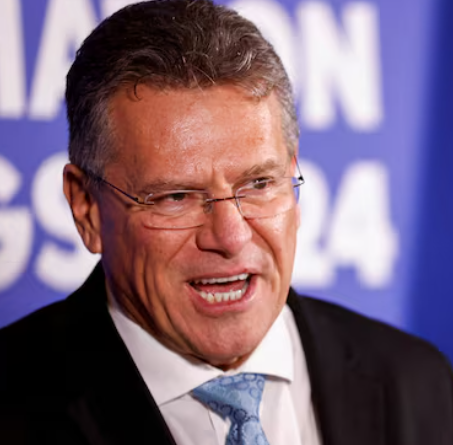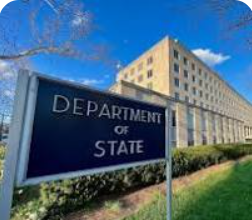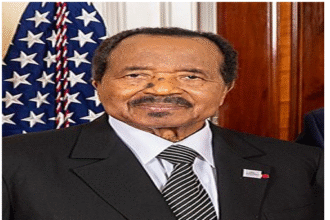By Emily Sims
Washington D.C. – Following a “very focused and productive meeting” in Washington on Monday, the European Union has publicly stated that the onus is now on the United States to move forward with negotiations on trade tariffs. Trade Commissioner Maroš Šefčovič, accompanied by Commission President Ursula von der Leyen’s chief of staff, Bjoern Seibert, met with US Commerce Secretary Howard Lutnick and Trade Representative Jamieson Greer, reiterating the EU’s offer of zero-for-zero reciprocal tariffs for industrial goods, including cars.
“The EU is doing its part. Now, it is necessary for the US to define its position,” said Olof Gill, spokesperson for the EU, in a statement today. He added that Šefčovič had repeated the offer during the meeting.
The discussions also touched upon the issues of overcapacities in the steel and aluminum sectors, as well as the resilience of supply chains in semiconductors and pharmaceuticals, according to Gill.
“We would need an additional level of engagement from the US to keep the ball rolling forward,” Gill told reporters on Tuesday. “It’s really over to them.”
The EU’s stance comes as the US continues to impose significant tariffs on imports from the EU, including 25% duties on aluminium, steel, and cars, and a further 10% tariff on most other European exports. These tariffs were initially implemented under the Trump administration, who criticized the EU for alleged unfair trade terms and accused Brussels of restricting market access through complex regulations.
Commission Deputy Chief Spokesperson Ariana Podesta stated that discussions are continuing between technical experts from both sides, with the aim of bringing the issue back to the “political level” where decisions can be made on the scope of a potential deal.
Despite the ongoing discussions, the EU has made it clear that certain red lines remain firmly in place. “EU standards particularly as they relate to food, health and safety are sacrosanct,” Gill emphasized, ruling out any negotiation on these regulations. He also reiterated that regulations pertaining to technology and the digital market are non-negotiable.
The next steps in these crucial trade negotiations remain to be seen, with the international community watching closely to see if the US will seize the opportunity to de-escalate trade tensions and forge a new path forward with the European Union.









